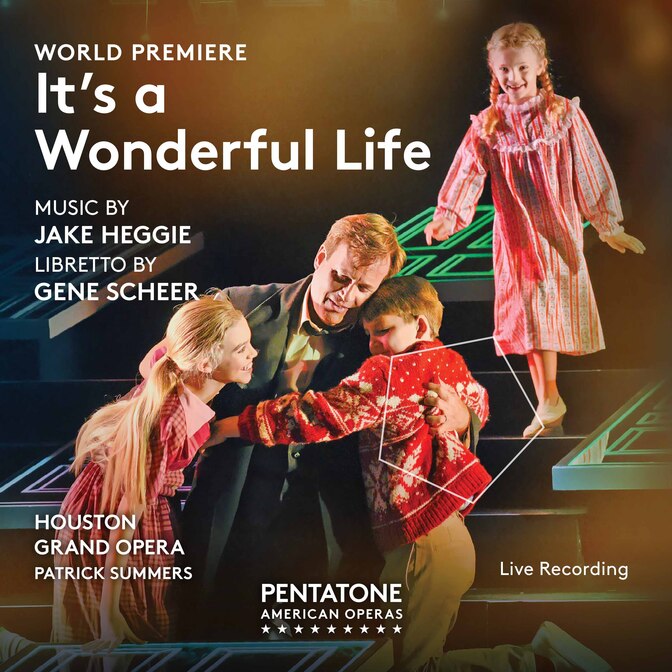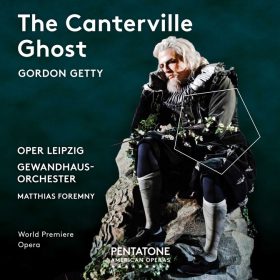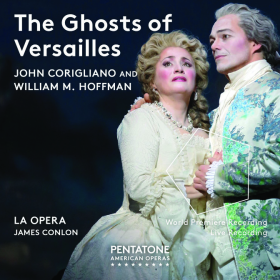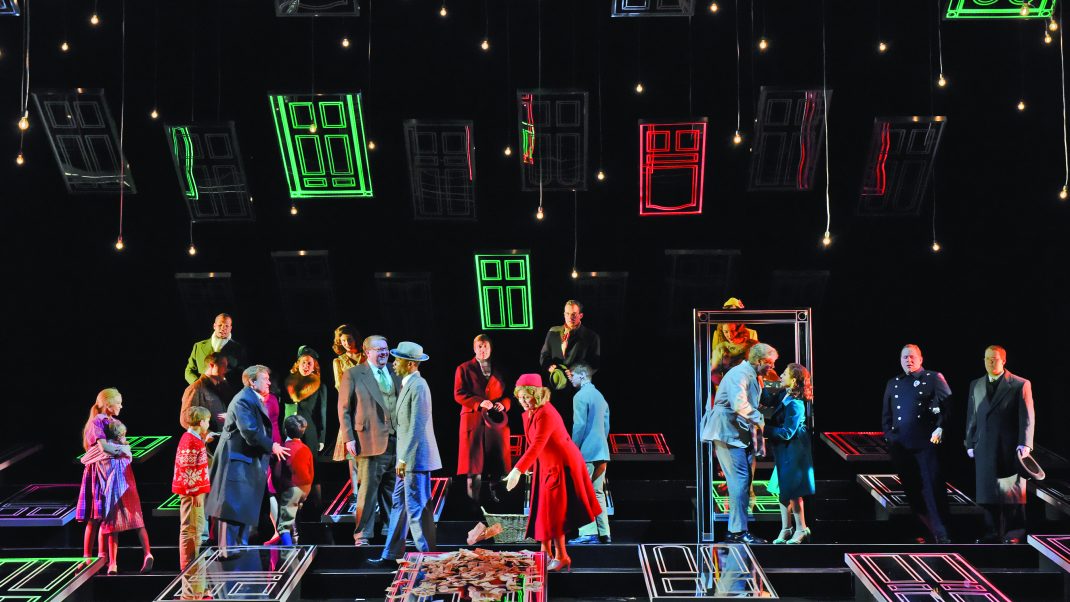CD1
Act I
CD2
ACT II
Album information
Composer Jake Heggie and librettist Gene Scheer knew before they ever wrote a note or a line of It’s a Wonderful Life that there are challenges in adapting a treasured classic for the operatic stage. After all, Heggie and Scheer’s hit 2010 opera Moby-Dick raised the same challenges: how could they remain faithful to the source material and still create something new, which emphasized the story’s innate operatic qualities?
For It’s a Wonderful Life, Heggie and Scheer responded by keeping the basic plot and characters from the beloved Frank Capra film version but changing the perspective. As in the film, an angel—changed in the opera from Clarence to Clara—is assigned to help a man named George Bailey, who is despondent and contemplating taking his own life on Christmas Eve; if Clara succeeds, she will earn her wings. But in a departure from the film, all the action takes place from Clara’s perspective and in her realm. Seventy mirrored doors represent portals in time and space, which Clara uses to piece together the events of George’s life in an effort to understand what has brought him to this moment of despair.
How well did Heggie and Scheer succeed? Critics said the “feel good” work (Opera Warhorses) “dispels any notion that you may have about expecting the opera to duplicate the film [and has a] crazy-quilt score that may be Heggie’s most delightful concoction” (Theater Jones). As the Houston Chronicle critic summed up, “George Bailey would be proud.”
“What a great joy, privilege, and immense challenge it was to take the beloved story of It’s a Wonderful Life and compose the music for the people of Bedford Falls. The emotional journey of George Bailey and Clara allowed me to call on musical styles of the 1920s, ’30s and ’40s, contrasted with music from the heavens. The project of a lifetime.”
—Jake Heggie
“From the moment I began work on the libretto, I believed that George Bailey’s journey from despair to redemption was something that music could thrillingly illuminate. I also believed, with all my heart, that this story’s message of the value of every life was essential for our own time. Working on this project has been a profound privilege.”
—Gene Scheer










